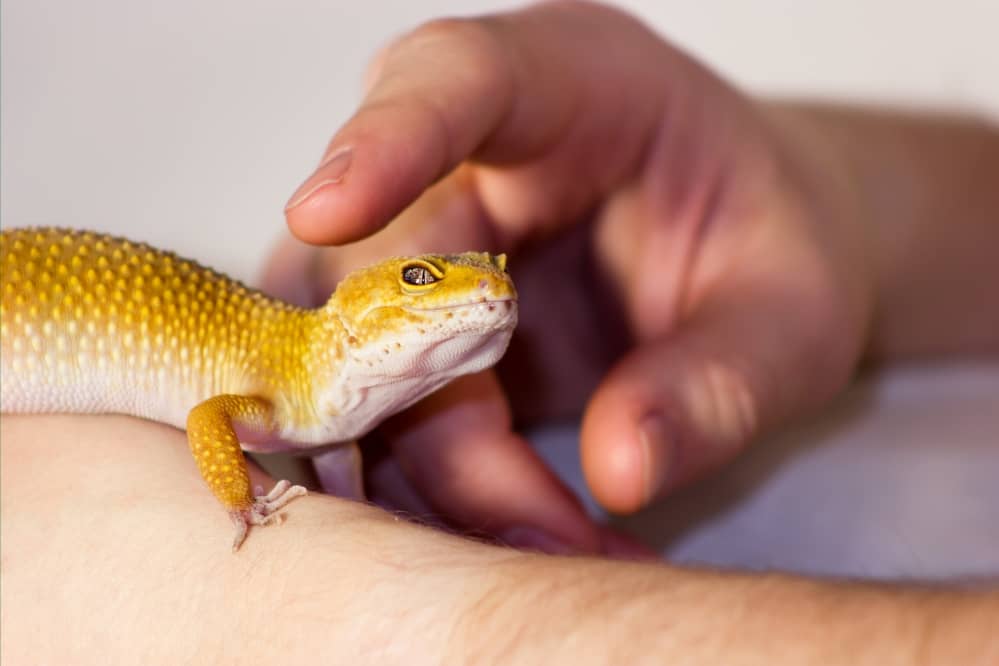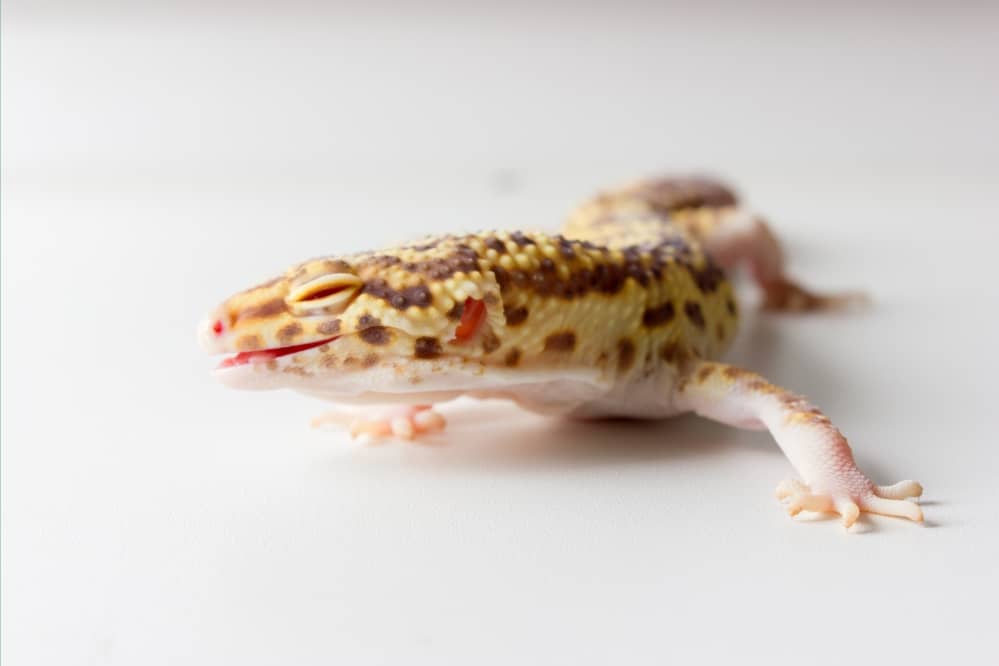Have you ever observed your leopard gecko yawning with its jaws wide open? It’s a pretty common behavior for reptile owners to witness, but some wonder what it means. They are concerned that this behavior may signify a deeper problem that a veterinarian must handle or evaluate. The good news is that not all yawning is problematic, but it is helpful to be aware of all the possible causes for this behavior.
Leopard Gecko yawning is typically benign. Leopard Geckos yawn to expel crickets lodged in their throat, wake up and warm their bodies. Consult a veterinarian if yawning is accompanied by symptoms such as regurgitation, lethargy, or breathing difficulties.
The key to maintaining your leopard gecko’s health is being aware of its indications and symptoms. This guide to their yawning will help you choose when to be concerned and when to rest assured that your gecko is healthy and comfortable.
5 Reasons Leopard Geckos Yawn
Yawning is consider excessive if well-fed and well-rested leopard gecko yawns more than five times each day.While intermittent yawning is normal for geckos, excessive yawning can indicate these potential problems that requires owner’s attention.
1. Stress due to heat
In tanks without a good temperature gradient can lead to heat stress in geckos. Its swift transition from the warm to cool atmosphere may trigger an extended or exaggerated yawn. Therefore, it is best to establish an appropriate living environment for your pet.
This mouth-opening behavior, which is frequently accompanied by gular pumping and fluttering, is believed to aid in faster body cooling. This evolutionary behavior has been attributed to reptilian thermoregulation by scientists.
How can you identify a stressed leopard gecko?
Common stress indicators in leopard geckos are diminished food, weight loss, increased hiding, glass swimming, and tail flapping. The majority of stress concerns are caused by improper setup and bad handling.
2. Presence of Pathogens
Some infections, such as parasites and viruses, can induce gastrointestinal issues, such as adverse food reactions. This can lead to leopard gecko exhibiting excessive yawning.
Even while geckos can endure harsh conditions in the wild, this does not make them immune or invulnerable to infection. When this occurs, it is recommended to make an appointment with a veterinarian.
3. Stuck Shed
Geckos may do things during shedding season that owners don’t usually see them do at other times of the year. In addition to repeated collisions with abrasive surfaces, excessive yawning can also stretch the skin.
Collectively, these seasonal actions may be linked to removal of sheds from various places of their body (without your assistance). Therefore, if your gecko frequently yawns during shedding season, it likely has a shed trapped on its head or neck.
4. Environmental Stressors
Geckos are often agitated by objects and conditions within their aquarium. In addition to indications such as glass surfing and tongue licking, excessive yawning may also be a symptom of such.
They could become stressed from incorrect care, such as inadequate lighting, temperature, and humidity. Even excessive feeder insects and abundant ornamental plants and trees can cause stress and illness. Consequently, when all other possible causes have been ruled out, management adjustments may be required.
5. Aggression
Think about the timing of your leopard gecko’s yawning behavior. If they expand their jaws widely and hold them open for a few seconds, it may be an indication of hostility. This is especially true if you are unfamiliar with the proper techniques for handling leopard geckos, as they regularly exhibit this behavior during or shortly after being handled.

This yawn could be their method of showing disapproval of how you treat them. Many geckos will perform this behavior before biting. In many ways, the yawn indicates that the individual does not like what is occurring. If you have numerous leopard geckos in same enclosure and consistently observe this behavior, it may indicate that they do not get along with their tank mates.
This can result in anxiety and disease. In the presence of new tank mates, frequent yawning may be a forerunner to conflicts and injury. Ensure that you take this behavior seriously and change your enclosure settings as needed to prevent harm to your geckos.
Conclusion
Leopard geckos are known for their sleepy eyes and face, but it’s not just because they’re tired. Yawning is often mistaken for other gaping actions like choking, vomiting, and a defensive stance. So, it is best to observe the action while it is taking place carefully. In this way, better and more appropriate care would be given.
Leopard geckos yawn when they are stressed, scared, or excited.

